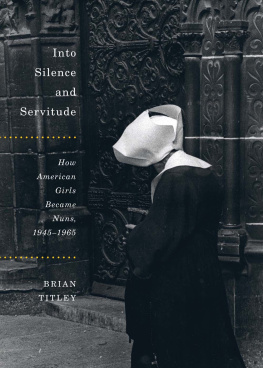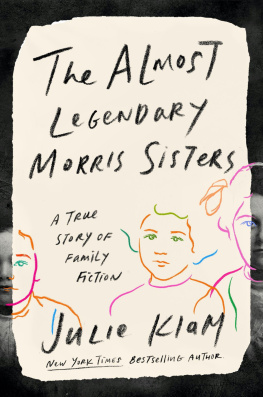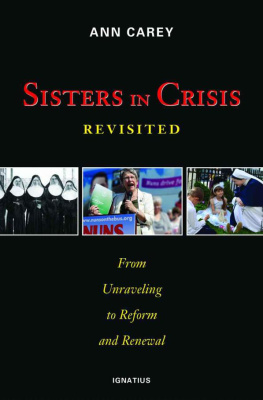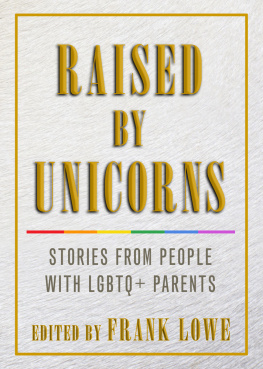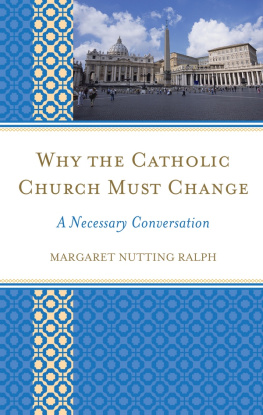Raised by the Church
Raised by the Church
Growing up in New York Citys Catholic Orphanages
Edward Rohs and Judith Estrine


Copyright 2012 Edward Rohs and Judith Estrine
All rights reserved. No part of this publication may be reproduced, stored in a retrieval system, or transmitted in any form or by any meanselectronic, mechanical, photocopy, recording, or any otherexcept for brief quotations in printed reviews, without the prior permission of the publisher.
Fordham University Press has no responsibility for the persistence or accuracy of URLs for external or third-party Internet websites referred to in this publication and does not guarantee that any content on such websites is, or will remain, accurate or appropriate.
Fordham University Press also publishes its books in a variety of electronic formats. Some content that appears in print may not be available in electronic books.
Library of Congress Cataloging-in-Publication Data
Rohs, Edward, 1946
Raised by the Church : growing up in New York Citys Catholic orphanages /
Edward Rohs and Judith Estrine. 1st ed.
p. cm.
Includes bibliographical references and index.
ISBN 978-0-8232-4022-7 (cloth : alk. paper)
1. Rohs, Edward, 1946 2. OrphansNew York (State)New YorkBiography. 3. ChildrenInstitutional careNew York (State)New York. 4. OrphanagesNew York (State)New York. 5. Church work with orphansCatholic Church.
I. Estrine, Judith. II. Title.
HV995.N49R64 2012
362.732dc23
[B]
2011026396
Printed in the United States of America
14 13 12 5 4 3 2 1
First edition
To Elsie Pascrell
Contents
My Ten Beliefs for Success
1. Always go after your dreams, even if they seem beyond your reach.
2. Always believe in yourself, even if you are the only one.
3. Always accept that obstacles and setbacks are inevitable in your pursuit of goals and dreams.
4. Always remember that determination and passion are key components for success.
5. Always surround yourself with people from whom you can learn.
6. Always try to be assertive and perform beyond what people expect or require of you.
7. Always aim high and keep raising the bar.
8. Always take responsibility for things that are under your control.
9. Always remember that loyalty is as important as competency.
10. Always go with your instincts and gut feelings when you are not sure what to do.
Acknowledgments
We are grateful for the contribution of many people to this book: Eric Newman, Fordham University Presss managing editor; Laura Wood, our agent at FinePrint; Peter Barksdale at the New York Public Library; and Nicholas Taylor, our copy editor. We thank Peter Vaughan and William Seraile for their careful reading of the manuscript and acknowledge the support of Geraldine Flaherty, Monsignor Robert M. Harris, Father Paul Landolfi, James McCann, Rita E. Moran, Father Joseph OHare, Tom Penders, Joseph Reilly, Robert Rohs, and Marilyn Sachar. Thanks also to Fred Nachbaur, Kate OBrien-Nicholson and Kathleen A. Sweeney, and Tara Kennedy. And finally, our love and gratitude to Steven Estrine, without whom this book would never have happened.
Prologue
I was born on March 23, 1946, and abandoned six months later when my mother, Viola Best, brought me to the Angel Guardian Home to be raised by the Sisters of Mercy. A couple of months later she and my father, Edward Rohs, formalized the arrangement by signing papers that made the church temporarily responsible for my upbringing.
My parents may have believed that in time they would take me back, so they did not sign papers giving up their parental rights. Without their signatures on that document, I could never be legally adopted.
Eventually they married, and nine years after I was born my mother gave birth to twins, Robert and Barbara, whom she and my father raised in a housing project in Queens. But they never claimed me. And they never got around to signing those papers. Legally, I remained a ward of New York state.
I grew up under Catholic auspices in institutional homes, now known as congregate foster care, and resided in five agencies throughout my childhood. Principally acting in loco parentis and under authority entrusted to them by the governor of the state of New York, these agencies were responsible for my maintenance, growth, and development until I was legally emancipated at age eighteen.
sowcmorg
Communities and Organizations
Edward Rohs
Judith Estrine
This chapter is an overview of the world of the Catholic orphanage system into which Ed Rohs was placed. It opens with a comparison between the fantasies of Hollywoods orphans and the reality of life in an orphanage. The chapter describes how, until the 1960s, the Catholic orphanage system operated a silo system of childcare, separating boys and girls by age and gender. Children lived in an institution until they aged out and were sent on to the next home. Although in some ways their experiences were similar to the experiences of so-called army brats who endured frequent dislocations with their families, the important difference between the population of orphans who were moved and those of children born and raised by army personnel lay in the absence of consistent parent figures. With each move, institutionalized children were assigned to be supervised by different individualsstrangers to whom they had to adjust. After being discharged from the system at 18 (Ed Rohs remained until 19) some succumbed to a life of drugs and drug-related crimes but others, like Ed, overcame adversities.
Hollywoods orphans
Catholic orphanage system
aged out
army brats
parent figures
silo system of childcare
Introduction
Hollywood loves its orphans. Any given year you are likely to find at least one movie involving a parentless child. The plot usually turns on one of the following scenarios:
Storyline #1. Orphan is feisty but also pathetically grateful to be given the chance to become part of a normal family in a normal environment. This orphan may be amusing or sad. He or she is adorable.
Storyline #2. Orphan is vengeful and so jealous of everyone that he or she repays benefactors by murdering them off, one at a time (vampire twist optional).
Storyline #3. Orphan languishes in a cold institution until a couple arrives unannounced. They are looking for their child, who, by some strange event, has been taken from them. They have one baby picture. If the movie is G-rated, they find the child and everyone lives happily ever after. If it is released to theaters on Halloween, the orphan is a homicidal stalker with a carving knife.
Storyline #3A. #3 as a musical. The wife is barren and the tyke cuter than cute. Lose the knife.
But there is another storyline, and it involves no knives and definitely no parents desperate to claim their son. But it is a true story, and it is mine. Before I was one year old and until I graduated from high school at nineteen, I was raised in five Catholic orphanages. I was not bounced from place to place because I was an unwanted problem child. I did not smash windows and I did not burn anything down. I was not a bad kid. Ask the nuns who raised me. They will tell you I was a good little boy with an impish grin and an overwhelming need to please.
I was moved around because the Catholic orphanage system in the 1950s and 1960s separated children by age and by gender. It was a silo system of childcare. Boys (and girls) within a particular age group stayed in an institution until they aged out and were sent on to the next home. Under this system, every few years I was transferred to the next school level in a different institutional setting in a different neighborhood. I received a strict parochial education at each school. One day, without fanfare and with minimal warning, a black plastic garbage bag would appear on my bed. I would be ordered to fill it with my few necessities, and then, along with other boys assigned to the same new location, I was driven in our institutions vehicle from the place we had come to know as home to a new home.
Next page

